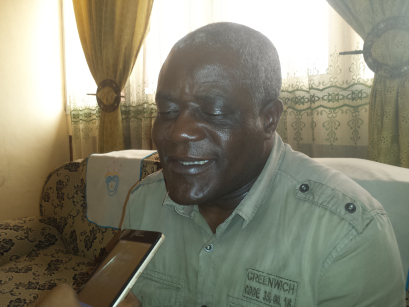Tracing Root of Coffee Production Decline in Cameroon, Way forward
Statistics released by the National Cocoa and Coffee Board of Cameroon, indicates that coffee production in Cameroon has dropped by 20% compared to the quantity produced in previous years.

Though 20,270 tons of coffee was produced during the 2016-2017 campaign, reports hold that this volume is the second-worst performance of Cameroonian producers during the last five campaigns after the 16,142 tons produced during the 2012-2013 campaign qualified as the worst campaign in the last 50 years by local actors.
In and interview granted The Green Vision recently, the Southwest Regional Delegate of Agriculture and Rural Development (MINADER), Christopher Kang Ekungwe, attributed this decline to the collapse of the cooperative systems in the early 1990’s. “The cooperative movement that was broken down discouraged many farmers because as cooperatives they were doing well. One thing is producing the right quality and the other marketing. It is easier done in groups since most of our farmers are small scale farmers” he said.
Besides the collapse of the cooperative system, fall in prices has equally been a discouraging factor.
“Apart from the cooperative movement going down there was a time when coffee prizes significantly dropped. There was a year when a bag sold at FCFA 3000 instead of the usual FCFA 30,000. This discouraged many coffee farmers and most of them abandoned and went into doing other activities,” the delegate explained.
In the midst of these, the Southwest MINADER Delegate holds that there are still coffee farmers in areas within his region like in Bangeng and Lebialem didn’t abandon their coffee farms because of the fall in prices. With increasing government attention to this sector and gradual increase in prices, the MINADER Southwest boss sees light at the end of the tunnel for coffee production in Southwest Cameroon. “In the Konye areas, many persons are thinking of reintroducing coffee. At the moment coffee is doing relatively well. Some farmers have told me a bag now sells at FCFA 24,000,” he hinted.
Way Forward for Coffee Production in Cameroon
As to the way forward to coffee production in Cameroon, Delegate Ekungwe recommended that every farmer venturing into coffee production treats it as a business and manage it as such. “Running something as a business means you monitor what comes out ensuring that output is more than input, and managing your profits so that it would improve the living standards of your own self and that of your family. Take care of school fees, health and others. So it’s no longer a matter of you don’t even know the quality of input, you sell so much and you feel that you have made a lot of money without comparing your cost to your revenue and know exactly what profit you make. It is an activity that can be very profitable if handled well as a business,” he reiterated.
The Southwest Agriculture boss underscored the importance of Cameroon transcending mare production to processing the coffee it produces. He explained that when other countries are the ones processing our coffee, they turn to determine the prices and there is nothing the Cameroonian farmer can do.
Mr. Ekungwe encouraged farmers to go in for quality, and to also integrate other cash crops into their coffee farms, that will generate them income in and out of season. “If you are doing coffee for example you harvest it once in a year, you won’t take that money throughout the year, it’s good that you grow different crops such as maize, okra, plantains, and beans. These are the crops that would give you income almost throughout the year. You may even realize you end up having more income from the short cycle crops than from the coffee,” the MINADER Regional Delegate expounded.
As far as quality is concern, he insisted that farmers must make sure that their coffee is void of smell, odor, chemical residues, dust and stone particles, would be detected. He said quality starts with the right variety, right cultural practices, and the most appropriate drying methods.
As Cameroon sets to reach meet her 2020 coffee production target of 150,000 tons, all hands must be put on deck and all recommendations taken to the drawing board for the amelioration of the sector.
By B. Shancho Ndimuh & Melody Mukum







